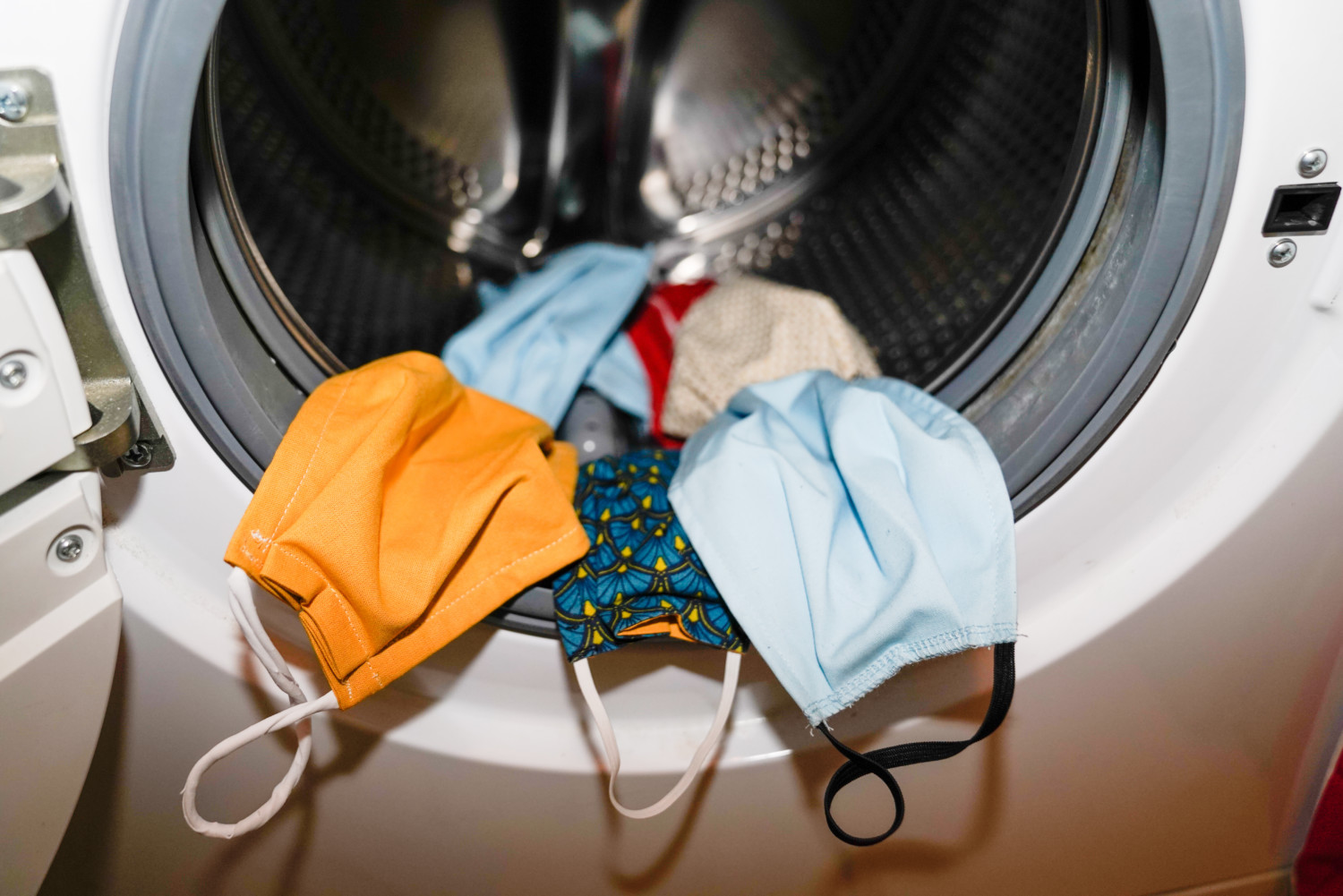It’s clear that wearing face masks during the pandemic could save countless lives and that caring for reusable masks properly is essential. The Centers for Disease Control and Prevention recommends washing cloth face masks anytime they get dirty, and every day at the least.
Nobody wants to put on a germy mask, but running a load of laundry every day just for masks can seem excessive. And what are you supposed to do if you wear an N95 mask but are running low on clean ones?
Although the CDC offers the alternative method of hand-washing masks using tap water and laundry soap, that can be time-consuming. Plus, you might be concerned that they don’t get quite as clean that way.
Fortunately, there are quick and creative substitutes for cleaning cloth masks in the washing machine or under the running faucet. You can even sanitize N95 masks in the kitchen.
Use An Instant Pot To Sanitize Cloth Masks
Your multicooker just became even handier. The CDC states that moist heat is one of the best ways to decontaminate N95 masks when you need to reuse them, and Instant Pots offer just that. In fact, the Department of Homeland Security published a video showing how to use this kitchen appliance for cleaning cloth masks.
To use this method, you will need the following:
- Multicooker with a sous vide function (or equivalent) and a rack
- Gloves
- Measuring cup
- Distilled or bottled water
- Paper bag
- Stapler or paper clip
Check out the video for instructions on how to turn your Instant Pot into a mask-washer.
If you don’t have an Instant Pot, another study showed you could use a rice cooker instead.
It is important to note that reuse of these masks is limited due to fit, damage, contamination or soiling, and filtration performance. The DHS recommends sanitizing and reusing them no more than five times.
Cloth Mask Disinfecting Alternatives
If you have a reusable cloth mask, you really can’t beat tossing it in the washer. Loma Linda University Health recommends washing in hot water with a detergent that contains disinfectant or bleach and using your machine’s sanitize cycle if it has one.
“Because we don’t know what germs we’ve been in contact with or how low long the germs have been active on the cloth fibers, it is crucial to regularly wash, sanitize and dry reusable face masks,” Ryan Sinclair, Ph.D. Sinclair told Loma Linda University Health. Sinclair is an associate professor of environmental microbiology at Loma Linda University.
If you are short on time or don’t have access to a washing machine, Popular Science recommends boiling masks. Allowing a mask to sit in boiling water for five minutes will sanitize it, although this method could shorten a cloth mask’s lifespan over time.
“Cloth face masks are going to have a lifetime — they deteriorate the same way your bed sheets fall apart wash, after wash, after wash,” Rachel Noble, a microbiologist and professor at the University of North Carolina at Chapel Hill, told Popular Science.

Keeping multiple reusable masks on hand might be the best way to go. With several masks for everyone in your family, you can run a single load once or twice a week and still stay safe.
“Have a few extra face masks on hand so they can be rotated,” Sinclair said. “That way you will always have a fresh, clean mask ready to use.”
[h/t: AllRecipes]
This story originally appeared on Simplemost. Check out Simplemost for additional stories.



